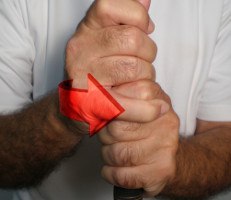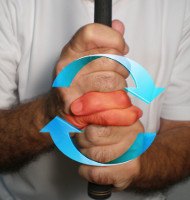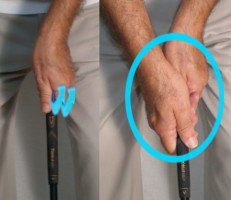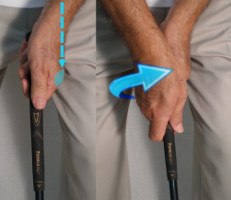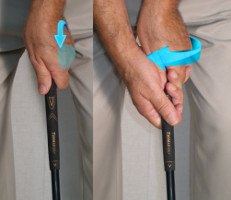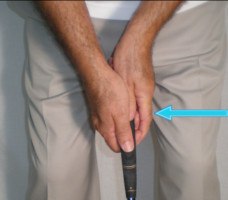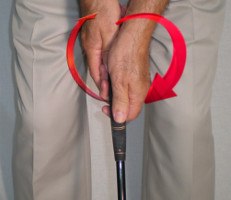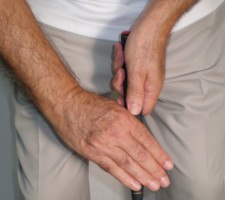|
Pros and Cons of Every Golf Grip Style |
Best Grip? Overlapping vs Interlocking |
Grip style: Vardon (overlapping)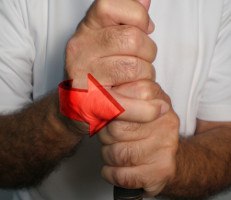 |
Hand position: strong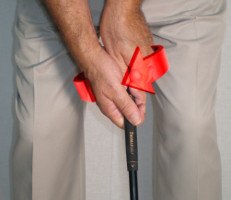 |
Putting grip style / hand position: Cross-handed (left hand low)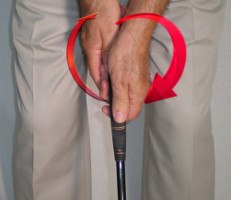 |
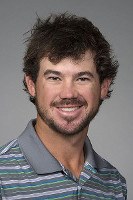
He’s part of a legion of University of Georgia products on the PGA TOUR, but does Brian Harman grip it and rip it like his fellow Bulldog and lefty, Bubba Watson?
Hardly. Their alma mater and handedness may be the same, but Harman’s and Watson’s golf games are anything but similar.
For starters, the 6’3” Watson towers over Harman, who stands 5’9” and weighs 150 pounds. Their grips are different, too. Where Watson’s is strong in the extreme, Harman’s is only mildly so. In fact, the former junior phenom features a pretty neutral hold with his right (top) hand, which he turns only a touch away from the target. His left hand is stronger, with the palm more underneath the handle.
This left hand position helps Harman generate a full release through the hitting zone to maximize power. Despite his size, he averaged a respectable 289 yards off the tee in 2014.
Brian Harman’s grip with the putter is somewhat unusual, but it’s effective. He’s a cross-handed guy, but differs from most by rolling his right (bottom) hand well under the handle until the wrist actually bows outward. Harman’s left hand, meanwhile, shows a pronounced angle or cup at the wrist. He keeps the back of his right hand very flat on the through-stroke, maintaining a square putter face.
Update:
Brian Harman uses a Vardon grip, which is a type of overlapping grip. To grip the club in this way, you place the right pinky finger on top of the crease between the left index and middle fingers. The Vardon grip is a popular choice among many professional golfers, as it helps to promote a neutral grip and a strong grip pressure.
Harman has said that he likes the Vardon grip because it helps him to keep his hands in the correct position throughout the swing. He also feels that it gives him more control over the clubface, which is important for his putting stroke.
If you are interested in trying the Vardon grip, it is important to experiment with it until you find a position that feels comfortable and natural for you. You may also want to consult with a golf instructor to get their advice on how to grip the club correctly.
Here are some tips for using a Vardon grip:
- Make sure that your hands are aligned correctly. The right pinky finger should be placed on top of the crease between the left index and middle fingers.
- Apply a firm grip pressure. The grip pressure should be firm enough to control the clubhead, but not so firm that it restricts your swing.
- Keep your hands in the same position throughout the swing. The Vardon grip helps to promote a neutral grip, which is important for a consistent swing.
With a little practice, you can learn to use the Vardon grip to improve your golf game.
Harman enjoyed his best season in 2014, earning his first win at the John Deere Classic. His key stat for the year: a ranking of eighth on tour in three-putt avoidance. It’s an overlooked but very important figure.
